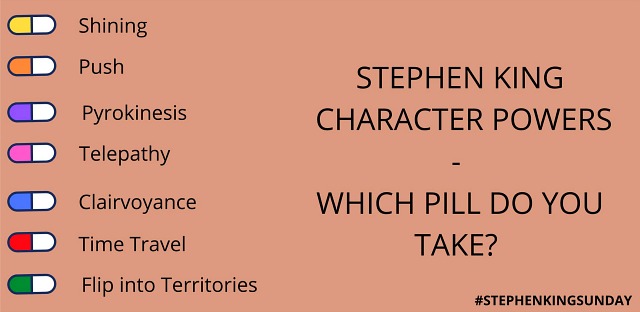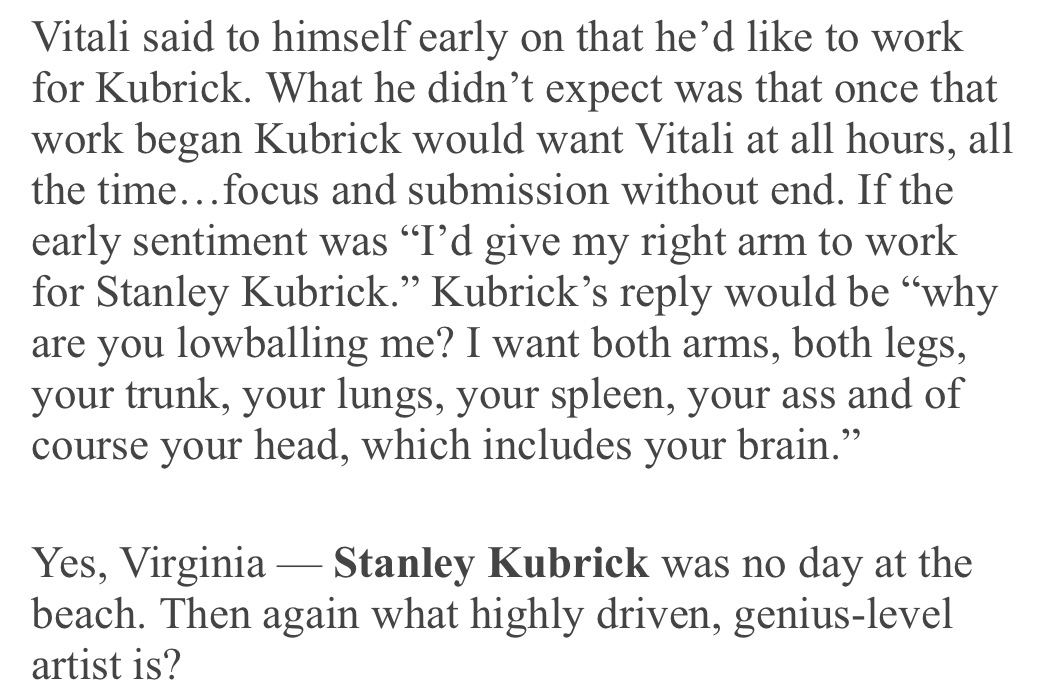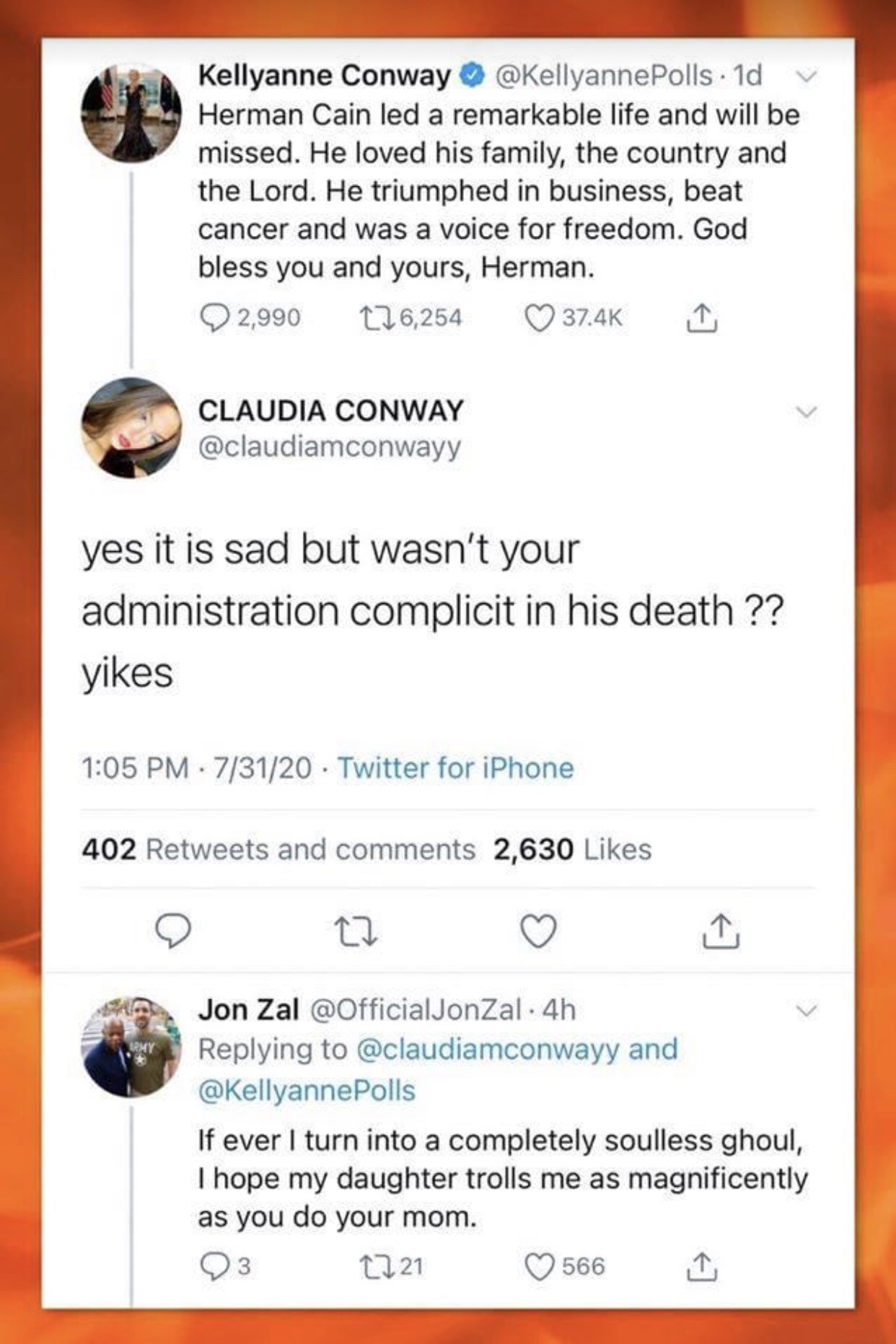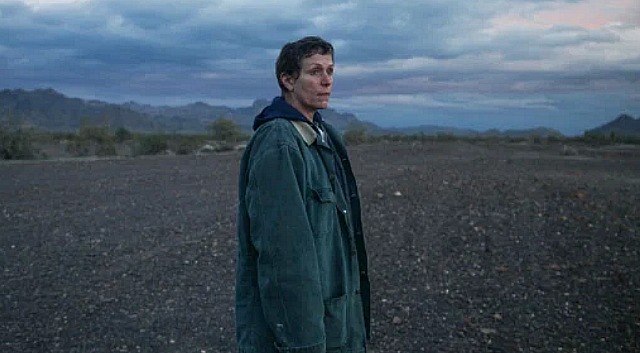Originally posted on 4.2.08: 25 years ago Oliver Stone did me a great favor, and I’ve thanked him at least two if not three times since. In ’95 he and publicist Stephen Rivers arranged for me to pay a brief visit to the Nixon West Wing — Oval Office, cabinet room, hallways, various offices, etc.
Production designer Victor Kempster had built the amazingly detailed set (including an outdoor portion with grass and bushes) on a massive Sony sound stage.
I was allowed in just after Stone and his cast (including Anthony Hopkins) and crew had finished filming. It was sometime around February or March of ’95. I wrote up my impressions for an L.A. Times Syndicate piece. Nixon opened on 12.20.95.
The Nixon unit publicist (or somebody who worked for Rivers) escorted me onto the stage and left. Nobody was around; I had the place all to myself. I had a video camera with me and shot all the rooms, and took my time about it. I was seriously excited and grateful as hell for the opportunity because it was, in a sense, better than visiting the real Oval Office in the real White House, which I would have never been allowed to do even if I’d been best friends with someone in the Clinton administration.

Nixon’s oval office.
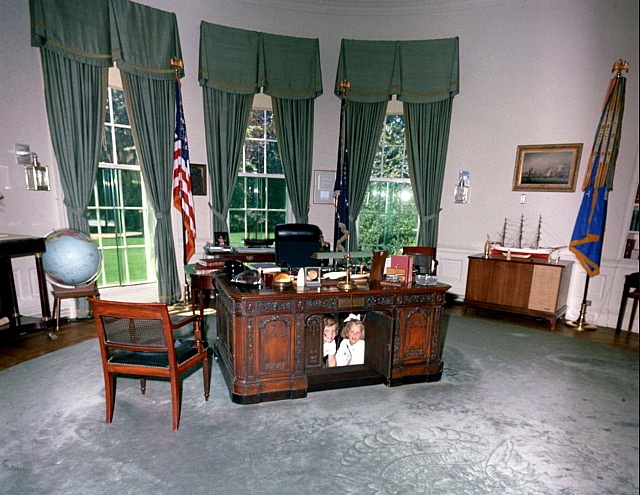
JFK’s subdued variation.
Every detail was Eric von Stroheim genuine. Wooden floors, real plaster, ceilings, rugs, moldings, early 1970s phones, bright gold French aristocracy drapes, china on the shelves and mantlepiece, etc.
Five years later I was granted a visit to a replica of Jack Kennedy‘s West Wing that had been used for the shooting of Roger Donaldson‘s Thirteen Days. It was around the same time of year — February or March of 2000, roughly nine or ten months before the movie’s release in December. The set had been built by production designer Dennis Washington inside a warehouse-type sound stage somewhere in southern Glendale or Eagle Rock.
The difference between the Nixon Oval Office decor — creamy beiges and bright golds, a bright blue rug, gilded bric a bracs on the shelves (which contributed to a kind of effete, faux-aristocratic atmosphere) — and the subdued greens, browns and navy blues of JFK’s office (which even had a replica of the coconut shell that Lt. Kennedy used to carve out a message during his PT 109 adventure) will always stay in my mind.
You can tell a lot about people from the decor in their homes and workplaces. Only an arrogant know-nothing would have chosen the nouveau-riche wooden floor that Bush had installed in ’05. The White House is a place of great history, echoes and ghosts, and it should look and feel like it’s been hanging in there for at least a century or so — stressed floors, old timber and dark varnish, like the early 20th Century and 19th Century homes that are found in the northeast.
These visits were as close as I’m ever going to get to the real Oval Office — they gave me a real organic window into recent history. Even if I’d been invited to the real White House I wouldn’t have had the chance to poke around and study everything at my leisure.
Read more
